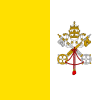JB5899
Only on here because I lost my pen.
Welcome to the Character Sign-Up section! This is where all sign-up forum will go. Please remember to follow the format and please have knowledge of your nation before making a sign-up!
Sign-Up Format:
Country:
Leader:
Government Type:
Overview of Country:
Do You Agree to the Rules of the Site and Forum RP?:
*Please add at least a paragraph of detail to your overview. Should encompass 1945-1955.
Last edited by a moderator:




















